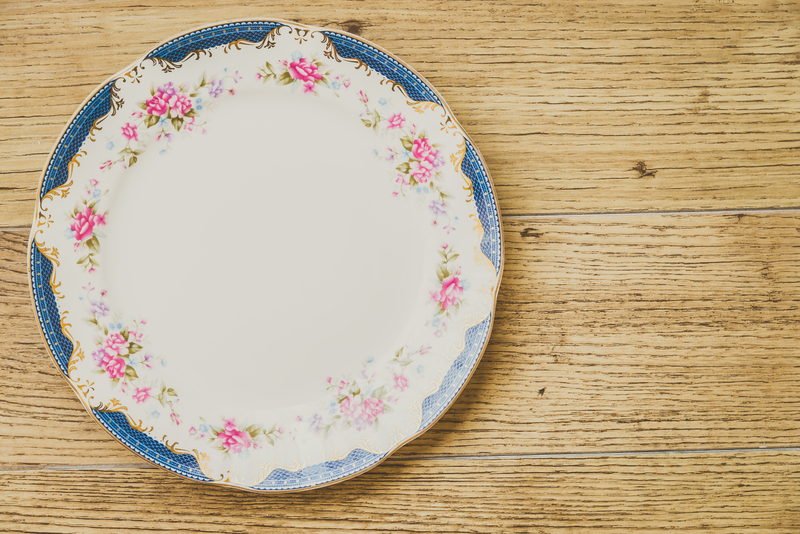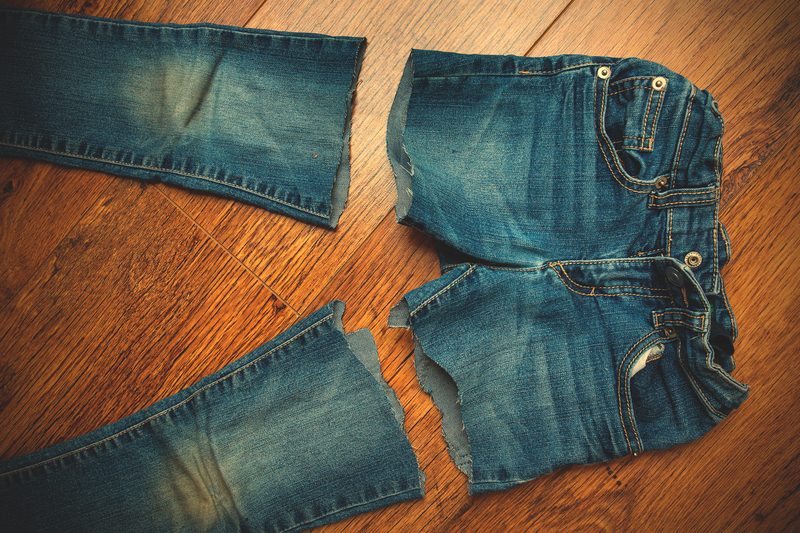Stretch Your Budget: Bulky Waste Disposal Hacks
Dealing with bulky waste can feel overwhelming for households and businesses alike. From old furniture to broken appliances, these large items take up space and, if not handled efficiently, can quickly drain your wallet. However, with a bit of planning, creativity, and the right strategies, you can manage bulky waste disposal without breaking the bank! In this comprehensive guide, we'll reveal a range of actionable bulky waste disposal hacks to help you save money, reduce environmental impact, and keep your surroundings clutter-free.
Understanding Bulky Waste
Before diving into the cost-saving tips, it's essential to clarify what constitutes bulky waste. Bulky waste typically includes items that are too large or heavy for regular curbside collection. These can be:
- Furniture (sofas, mattresses, wardrobes, tables)
- Appliances (fridges, washing machines, ovens, TVs)
- Carpets and Rugs
- Building Materials (doors, bathtubs, sinks)
- Outdoor items (bicycles, garden furniture, BBQs)
Properly managing these items is crucial not just for your budget, but for the environment too. Let's explore how you can stretch your budget with effective large item disposal strategies.

Why Bulky Waste Disposal Can Be Costly
Many cities charge for bulky junk collection or offer only a few free pickups each year. Private collection services and skip hires often involve steep fees, especially for multiple or awkward-sized items. Furthermore, improper disposal can result in fines. These costs can add up quickly, but fortunately, there are proven budget-friendly bulky item disposal hacks to keep expenses low.
Common Reasons People Overspend on Bulky Waste Disposal
- Hiring skip services without exploring alternatives
- Paying for municipal pickups beyond the free allowance
- Improper sorting resulting in additional landfill charges
- Lack of knowledge about free community resources
Bulky Waste Disposal Hacks: Save Money & the Planet
Let's dive deep into practical, cost-effective strategies for disposing of bulky items. You don't need to shell out a fortune--a little knowledge and resourcefulness can go a long way!
1. Donate or Give Away Items in Good Condition
One person's trash is another's treasure. If your furniture, electronics, or appliances are still usable, consider donating them to a local charity, shelter, or community organization. Many organizations offer free pick-up services.
Key donation options include:
- Charity shops and thrift stores
- Churches and non-profit organizations
- Online giving platforms (e.g., Freecycle, Facebook Marketplace, Craigslist "free" section)
2. Sell or Swap Bulky Items
Want to turn rubbish into revenue? Try selling gently-used bulky items online. Platforms such as eBay, Facebook Marketplace, Gumtree, and Nextdoor can help you connect with eager buyers. For items that might not fetch cash, consider swapping sites or local barter groups.
Pro tip: Offer items at bargain prices or bundle several pieces for a better deal. You can also promote "pick-up only" to save on delivery costs.
3. Repurpose or Upcycle Old Items
Get creative with upcycling! Old doors can become headboards, broken drawers are great garden planters, and outdated chairs can be given new life with some paint. Repurposing not only delays the need for disposal but can also result in unique home decor.
For inspiration, check Pinterest or YouTube for countless upcycling projects.
4. Use Council Bulky Waste Collection Services
Many city councils offer subsidized or even free bulky waste collection for residents. This is often limited to a certain number of items or number of collections per year, so check your local authority's website for specifics.
- Book in advance as slots fill up quickly
- Follow guidelines about item types and collection points
- Avoid fines by confirming what's accepted
5. Split Collection Costs with Neighbors
Going in on a shared skip rental or a group collection can slash your disposal bills. Reach out to neighbors or community groups to see who else needs to get rid of bulky rubbish. Coordinate a group pickup or hire a skip together.
- This method is perfect for estate cleanups or post-renovation waste.
6. DIY Disposal with Household Waste Recycling Centres
If you have access to a vehicle, transporting your bulky items to the nearest council recycling center can be a totally free or low-cost solution. Check local rules: some centers require proof of residency or booking a time slot.
*Most recycling centers accept a wide range of bulky items (wood, metal, electronics, white goods, mattresses), but always check ahead for limitations.*
7. Book "Man with a Van" Services
Small-scale local haulers--or "man with a van" businesses--often charge less than big-name junk removal firms. They may also be more flexible with scheduling and more open to negotiating prices, especially if you have multiple items.
Always check for proper licenses and insurance coverage before booking!
8. Explore Appliance and Mattress Recycling Programs
Many retailers and manufacturers offer takeback programs when you buy a new mattress or appliance. Some even offer free or discounted disposal for your old item when you purchase from them.
This is a hassle-free method to dispose of large, heavy items while reducing your environmental footprint.
9. Leverage Special Community Collection Days
Some towns organize yearly or seasonal "large item pickup days," where residents can dispose of big waste items at no charge. These events are perfect for getting rid of old couches, appliances, and other bulky household waste.
- Keep an eye on city calendars and sign up early--slots fill fast!
10. Offer Items for Parts or Scrapyard Collection
Broken appliances or metal objects may have value to hobbyists, tinkerers, or scrap yards. Many scrapyards pay for metal by weight and may pick up heavy items like refrigerators, bed frames, or radiators for free.
*Tip: Always remove any refrigerants or hazardous materials before scrap metal collection.*
Smart Sorting: Avoid Hidden Charges
One of the easiest ways to stretch your budget when disposing of bulky rubbish is by sorting out what's truly waste vs. what can be recycled or reused. Incorrectly mixing different types of waste can lead to extra landfill charges and environmental waste.
- Separate out electronics (e-waste), metals, woods, and hazardous materials
- Group items by type for easier collection and recycling
- Label items if leaving them for a shared pickup
Many recycling centers and charities have specific requirements. For example, electronics and batteries usually require special handling, while pressure-treated wood or asbestos cannot be accepted at general recycling facilities.
Bulky Waste Disposal FAQ
What counts as bulky household waste?
Bulky household waste, by definition, includes large furniture, appliances, carpeting, mattresses, and other household items too big for regular trash bins and curbside pickup.
How much does bulky item disposal cost?
Fees vary widely: municipal services may charge $20-$60 per item or offer some free pickups, while private services could charge over $100 for a single large item. Skip rental usually starts around $200 per week. Applying these disposal hacks can help you avoid or significantly reduce these costs.
Is illegal dumping ever worth the risk?
No! Illegal dumping is dangerous, damages the environment, and can result in fines of hundreds or even thousands of dollars. There's always a legal, low-cost option--use the tips in this guide.
Advanced Bulky Waste Disposal Hacks and Pro Tips
Deconstruct to Minimize Volume
Break down your bulky items before disposal whenever possible. For instance, disassembling beds, removing sofa legs, or flattening cardboard saves valuable space in skips or curbside stacks--meaning you or your neighbors can fit more into a single collection run.
Schedule Smartly
Bulk pickups and recycling center trips are fastest when you prepare in advance.
- Check local collection calendars and book ahead
- Batch items together to maximize space and minimize trips
- Consider traffic and center operating hours to avoid long waits
Use Local Social Media Groups
Facebook groups and neighborhood forums are great for finding someone who wants your stuff--even if it's for parts or upcycling. List items as "free for collection"--you might be surprised how quickly things disappear!
Environmental Benefits: Choosing Sustainable Disposal
Applying these bulky waste disposal tips doesn't just save money--it helps the planet. Reducing landfill, promoting reuse, and recycling materials all contribute to a healthier ecosystem.
- Donating keeps usable items in circulation
- Recycling conserves energy and raw materials
- Proper disposal prevents pollution and habitat loss

Summary: Maximizing Your Bulky Waste Disposal Strategy
Bulky waste doesn't need to be a burden on your wallet--or the planet. By leveraging these bulky waste disposal hacks, you can keep your home or office clear, stretch your budget further, and do your part for sustainability.
- Donate or sell whenever you can
- Use community collection resources and recycling centers
- Consider shared or DIY solutions for large loads
- Sort, deconstruct, and schedule smartly
- Say no to illegal dumping--there's always an affordable, legal alternative!
With a mix of knowledge, creativity, and local resources, bulky waste disposal becomes simple, affordable, and even rewarding. Next time you face a pile of unwieldy items, use these budget-stretching tips and join the growing community of savvy, sustainable declutterers!
Want More Budget-Friendly Living Tips?
Bookmark this guide and share it with friends and neighbors. For more actionable advice on saving money and living sustainably, check out our latest articles and community forums. Together, let's keep the planet greener and our wallets fuller!